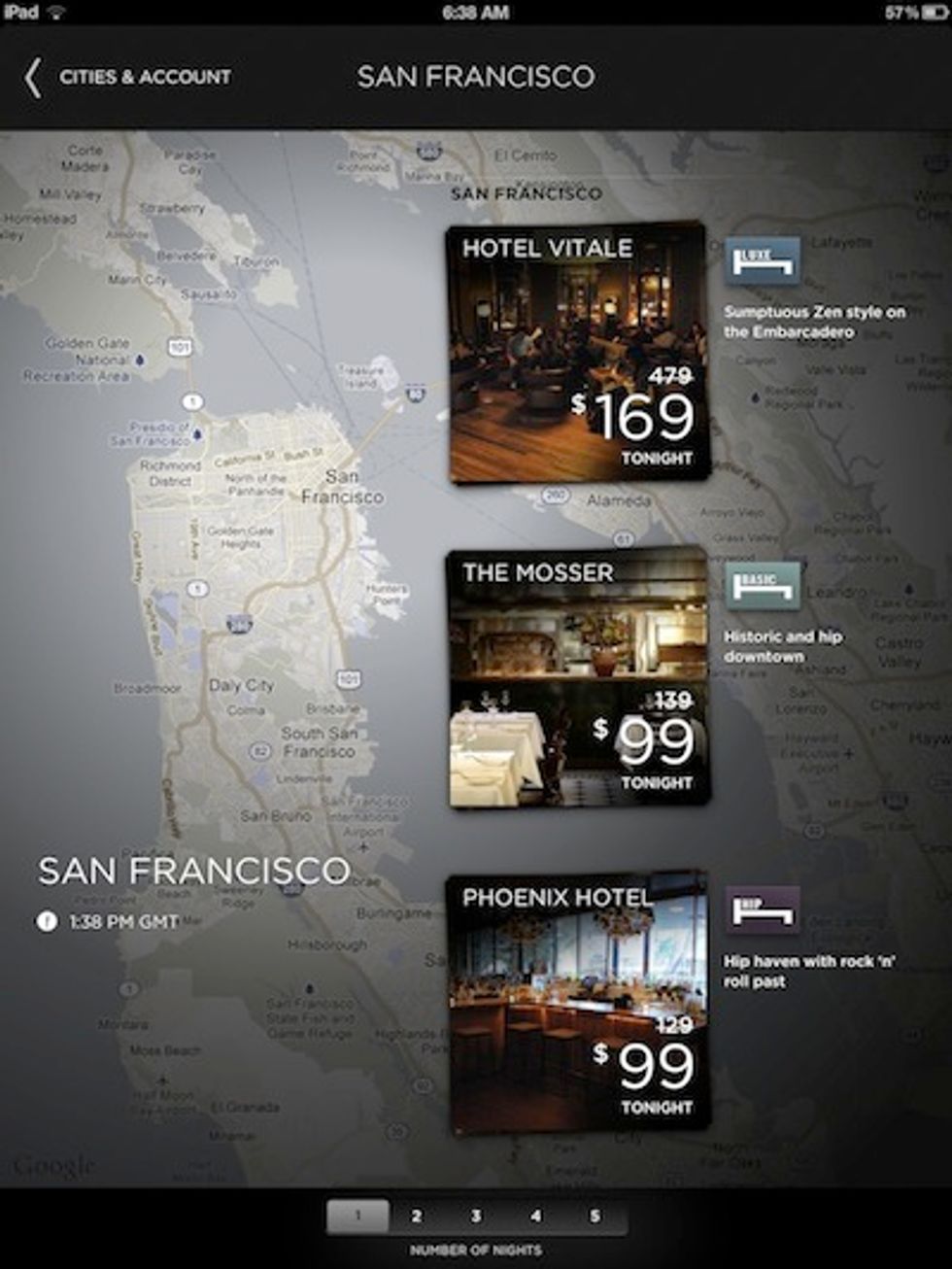Here’s a scenario. You decide to go out on the town with friends after work, but worry that you’ll have so much fun you won’t be able to handle a late commute home.
What to do?
Well, just pull out your smart phone (or as of today, your iPad), download the Hotel Tonight app, and score a great deal with a last-minute booking at one of a half-dozen local hotels, ranging from basic to luxury.
“It takes just three taps and a swipe to book,” says Hotel Tonight’s CEO, Sam Shank. “That’s about 30 seconds on your mobile device.”
According to the company, which launched 14 months ago, the market for this service is larger than you might have imagined – up to 15 percent of all hotel bookings are last-minute walk-ins.
“And mobile is changing things,” says Shank. “People expect to get deals with electronic bookings.”
The ability of these “impulse bookers” to use Hotel Tonight’s simple app while sitting there in the club with friends is a welcome development to the hotel industry.
“What we offer is a new source of mobile demand,” he says. “Over half of our bookings are from people who would not otherwise have booked a hotel.”
He adds, “The hotels are happy to give deals, they have a perishable inventory.”
The app has been available for both iPhones and for Android devices for a while, and there have been more than 1.4 million downloads to date. It is the top-rated travel app on both platforms.
As of today, it is also available on the iPad, and the high-res photos it commissions of hotel rooms, lobbies, and bars by professional photographers look really fabulous on the tablet’s screen.
The company is already in 37 markets, offering just a few hotels in each per night, and is adding several new cities per month. “We might have 40 hotels signed up in that city, but we only show the very best deals,” says Shank.
Hotel Tonight’s business model is conventional – it takes a cut of the hotel rate, which is standard in the industry.
The company’s customer service is available 24-7, by phone, email, or real-time live chat, and the team is completely U.S.-based. Increasingly, consumer-facing startups in the Bay Area are deciding that CS is much too critical to their ability to scale to consign to the discount offshore services favored by a previous generation of companies.





















